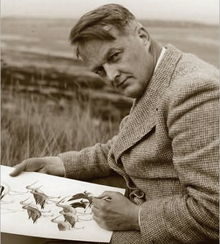A Quote by Noam Chomsky
Bolivia is in the lead internationally in talking about the threat of environmental catastrophe. It's generally true where there are indigenous populations, there are important things happening; where the indigenous populations have been marginalized or exterminated, things go to a disaster. This is true worldwide, and Bolivia is striking because it's a majority population and in the lead.
Related Quotes
In the case of my country, Guatemala, 65% of the inhabitants are indigenous. The constitution speaks of protection for the indigenous. Who authorized a minority to protect an immense majority? It is not only political, cultural and economic marginalization, it is an attempt against the dignity of the majority of the population.
Intellectual traditions emerging from populations that have always been the constitutive other in the development of the properly free citizen - indigenous people, populations labeled physically or mentally unfit, black people, migrants, women, prisoners - have always produced robust critiques of the what Dylan Rodriguez calls "white bourgeois freedom."
Bolivia is a striking example. The mostly white, Europeanized elite, which is a minority, happens to be sitting on most of the hydrocarbon reserves. For the first time Bolivia is becoming democratic. So it's therefore bitterly hated by the West, which despises democracy, because it's much too dangerous.
So many indigenous people have said to me that the fundamental difference between Western and indigenous ways of being is that even the most open-minded westerners generally view listening to the natural world as a metaphor, as opposed to the way the world really is. Trees and rocks and rivers really do have things to say to us.
You were born to lead as mothers and fathers because nowhere is righteous leadership more crucial than in the family. You were born to lead as priesthood and auxiliary leaders, as heads of communities, companies, and even nations. You were born to lead as men and women willing 'to stand as witnesses of God at all times and in all things, and in all places' because that's what a true leader does.































